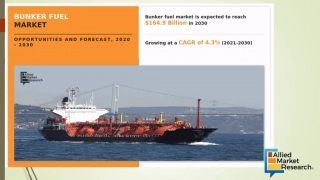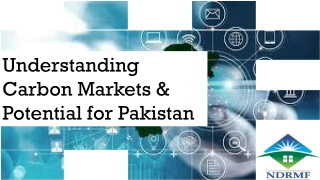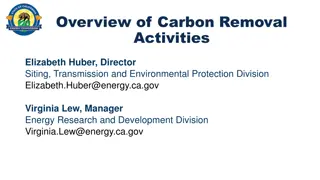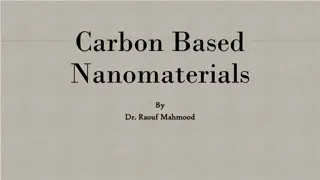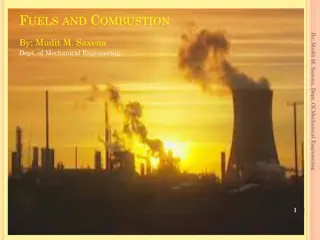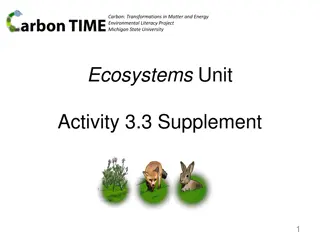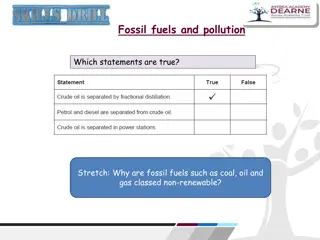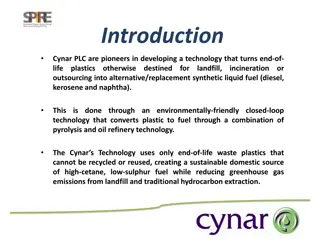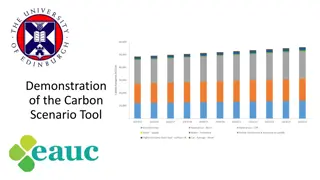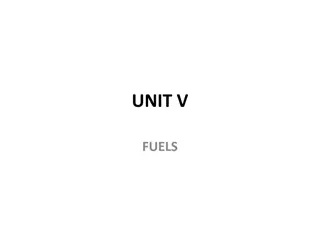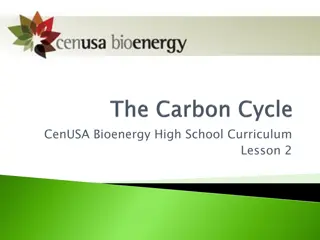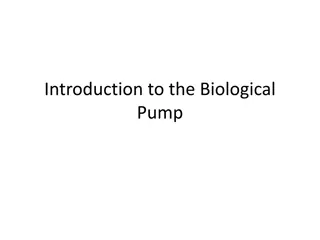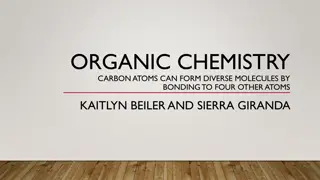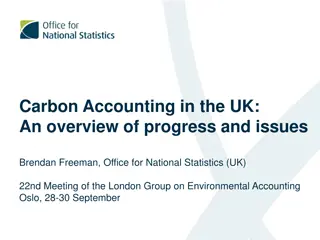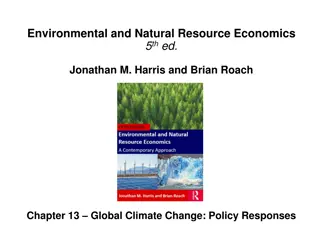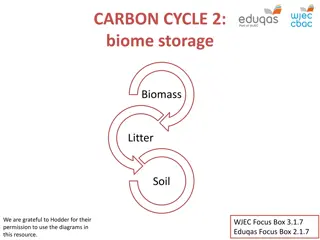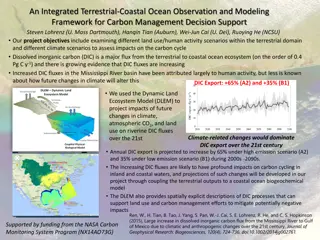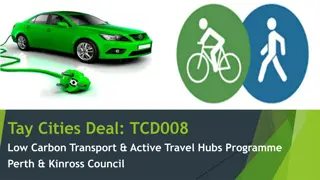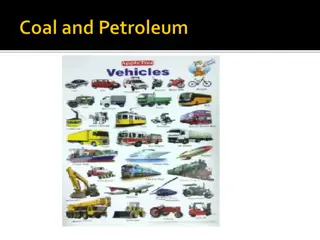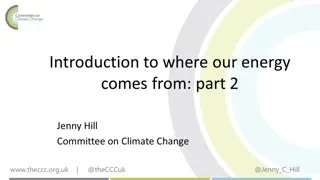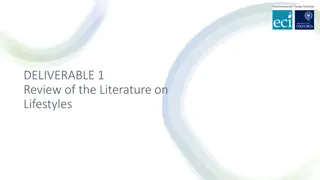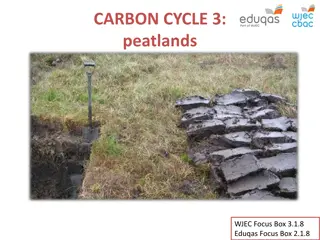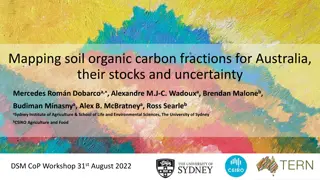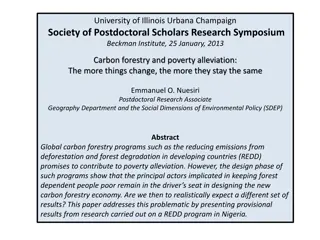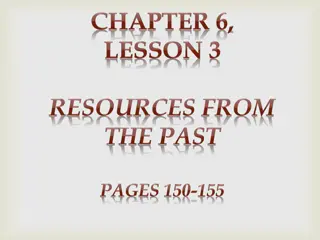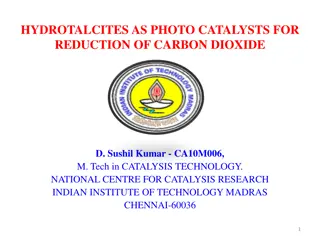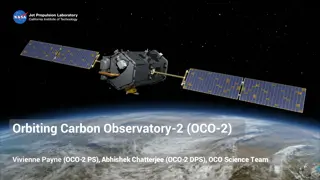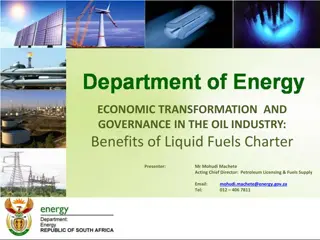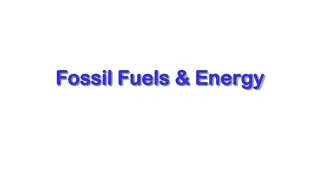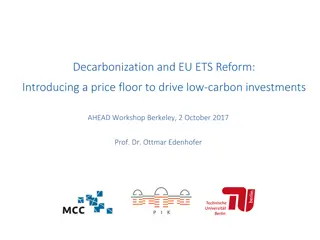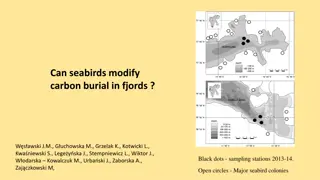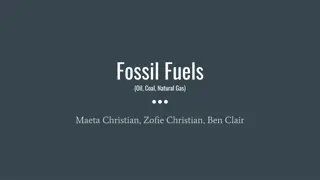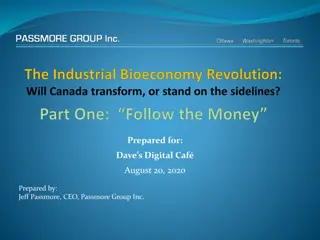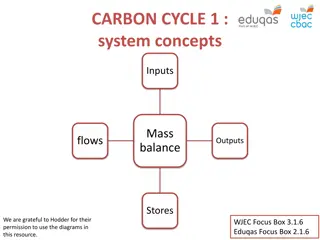Bunker Fuel Market
Bunker fuel is a fuel oil used in marine vessels. It is poured into the ship bunkers to keep the engines running. Ships use three types of marine fuels, which include high sulfur fuel oil, low sulfur fuel oil, and diesel oil. Presently, growth in awareness toward reducing environmental pollution and
2 views • 6 slides
Bunker Fuel Market
Bunker fuel is a fuel oil used in marine vessels. It is poured into the ship bunkers to keep the engines running. Ships use three types of marine fuels, which include high sulfur fuel oil, low sulfur fuel oil, and diesel oil. Presently, growth in awareness toward reducing environmental pollution and
1 views • 6 slides
Bunker Fuel Market
Bunker fuel is a fuel oil used in marine vessels. It is poured into the ship bunkers to keep the engines running. Ships use three types of marine fuels, which include high sulfur fuel oil, low sulfur fuel oil, and diesel oil. Presently, growth in awareness toward reducing environmental pollution and
6 views • 6 slides
Harnessing Carbon Markets for Sustainable Development in Pakistan
Understanding the significance of carbon markets, this content delves into the interplay between economic growth and environmental sustainability, emphasizing the urgency to limit unsustainable practices. It explores mechanisms such as carbon pricing and cap-and-trade systems in the context of clima
0 views • 17 slides
Carbon Pricing Overview and EU Green Deal Agenda
The overview of carbon pricing inside the EU highlights key aspects such as the EU Green Deal, revision of the EU ETS, and the Carbon Border Adjustment Mechanism. The EU aims for carbon neutrality by 2050 with a 55% reduction target. The Fit for 55 initiative emphasizes relevance for the Energy Comm
4 views • 16 slides
Overview of California's Carbon Removal Initiatives
California's Carbon Removal Innovation Support Program (CRISP) aims to incentivize Direct Air Capture (DAC) development in the state. The program includes research test centers, small-scale demonstrations of DAC technologies, community engagement, technical assistance, and more to enhance carbon rem
0 views • 5 slides
Understanding the Carbon Cycle: Reservoirs, Dynamics, and Importance
Earth's carbon cycle plays a crucial role in sustaining life, with carbon moving through various reservoirs and processes. This cycle involves short-term terrestrial and marine cycles, as well as long-term cycles influenced by volcanic activity and rock weathering. Understanding carbon reservoir dyn
6 views • 45 slides
Understanding Carbon-Based Nanomaterials and Their Technical Applications
Carbon-based nanomaterials, including fullerenes and carbon nanotubes, have revolutionized various industries with their unique properties. These materials, classified based on their geometrical structure, have applications in fields such as electronics, gas storage, biotechnology, and more. Fullere
0 views • 12 slides
Exploring Fuels and Combustion in Mechanical Engineering
This content delves into the intricate world of fuels and combustion, discussing classifications, properties, and origins of various fuels such as solid, liquid, and gaseous. It covers the importance of desirable fuel properties, caloric values, and the different types of natural and artificial fuel
0 views • 34 slides
Tracing Carbon Atoms in Ecosystems: Understanding the Organic Matter Pyramid
Explore the journey of 500 carbon atoms through producers, herbivores, and carnivores in an ecosystem. Discover how carbon atoms move through photosynthesis, cellular respiration, and biosynthesis, ultimately contributing to the organic matter pyramid. Follow the pathways of carbon atoms as they cyc
0 views • 7 slides
Understanding Fossil Fuels and Pollution: A Comprehensive Overview
Fossil fuels such as coal, oil, and natural gas are non-renewable energy sources that release heat energy when burned, but also contribute to pollution when not burned completely. This leads to the release of harmful pollutants like carbon dioxide, carbon monoxide, sulfur dioxide, and carbon particu
2 views • 9 slides
Innovative Fuel Technology by Cynar PLC: Converting Plastic Waste into Sustainable Fuels
Cynar PLC pioneers technology converting end-of-life plastics into synthetic liquid fuels, reducing landfill waste and greenhouse gas emissions. Seeking partners for future fuel development and renewable energy projects. Advanced discussions with potential collaborators. Opportunities to combine alt
0 views • 5 slides
Understanding the Carbon Scenario Tool for Climate Change Management
The Carbon Scenario Tool (CST) is a valuable resource developed by the University of Edinburgh and the Scottish Funding Council to manage, report, and forecast carbon emissions for university estates and operations. It enables the calculation of the impact of carbon reduction projects and the develo
2 views • 18 slides
Understanding Fuels and Their Classification
Fuels are combustible substances that serve as a source of heat or raw material for various industries. They can be classified as natural or artificial, solid, liquid, or gaseous, and primary or secondary fuels. Primary fuels like coal and wood are directly used for heat, while secondary fuels are m
4 views • 88 slides
Understanding Carbon Movement in the Environment
Explore the intricate processes of carbon movement in the biosphere, atmosphere, oceans, and geosphere. Learn how plants absorb carbon dioxide, animals utilize carbon for tissue building, and the impacts of human activities like burning fossil fuels on carbon distribution. Discover the critical role
0 views • 6 slides
Understanding the Biological Pump and Carbon Cycle in the Ocean
The biological pump in the ocean involves photosynthesis by phytoplankton, which removes carbon dioxide from the atmosphere, and respiration, where some CO2 is released back. Phytoplankton are crucial in the ocean's carbon cycle, with primary consumers like zooplankton depending on them for energy.
0 views • 20 slides
Understanding Organic Chemistry: Carbon Atoms and Molecular Diversity
In organic chemistry, carbon atoms can form diverse molecules by bonding to four other atoms, leading to molecular complexity and diversity. The versatile nature of carbon allows for the formation of various carbon skeletons, contributing to the vast array of organic compounds. Hydrocarbons, consist
0 views • 12 slides
Innovative CPC Futures Contract Program for Agribusiness Sustainability
The Commodity Plus Carbon (CPC) Futures Contract Program integrates agricultural commodity prices with carbon valuation to incentivize good agricultural practices and reduce carbon footprint. By combining ag commodity prices with carbon reductions, CPC contracts offer hedging opportunities and incen
0 views • 8 slides
Overview of Carbon Accounting in the UK: Progress and Challenges
The project aims to test the feasibility of producing SEE-EEA style Carbon Accounts, assess data sources, and lay a path for further development. Carbon accounting in SEE-EEA identifies carbon as a key theme, supporting ecosystem measurement. The UK's carbon accounts cover geosphere, biosphere, ocea
0 views • 15 slides
Policy Responses to Global Climate Change: Alternative Carbon Taxes and Impacts on Fossil Fuels
The chapter discusses the implementation of alternative carbon taxes on fossil fuels and their effects on retail prices of gasoline, coal, and natural gas. It provides insights into the impact of carbon pricing on emissions, retail prices, and consumption patterns, emphasizing the importance of carb
0 views • 15 slides
Understanding Carbon Storage in Biomes and Ecosystems
Explore the intricate carbon cycle within terrestrial ecosystems, focusing on carbon storage in biomass, litter, and soil. Delve into the differences in plant characteristics among various biomes and their impact on carbon sequestration. Gain insights into the distribution of tropical rainforests an
0 views • 13 slides
Integrated Terrestrial-Coastal Ocean Framework for Carbon Management
An advanced framework integrating terrestrial and coastal ocean observations and modeling is developed to support carbon management decisions. The study focuses on assessing the impacts of land use, human activities, and climate scenarios on the carbon cycle, particularly dissolved inorganic carbon
0 views • 5 slides
Tay Cities Deal TCD008 Low Carbon Transport & Active Travel Hubs Programme in Perth & Kinross Council
The Tay Cities Deal TCD008 Low Carbon Transport & Active Travel Hubs Programme aims to enhance sustainable travel options in the region, improve connectivity, workforce mobility, and innovation. The three-phase program includes projects like the Broxden Low Carbon Transport Hub, Perth Active Travel
0 views • 12 slides
Understanding Fuels and Their Uses
Fuels are substances that release energy when burned, such as coal, petroleum, and natural gas. They are used in transportation, cooking, heating, electricity production, and industrial processes. Good fuel characteristics include being economical, easily available, non-toxic when burned, high heat
0 views • 9 slides
Achieving UK Net-Zero: Strategies for Carbon Capture and Low-Carbon Fuels
Explore the pathways to achieving UK net-zero carbon emissions through carbon capture, low-carbon alternative fuels like hydrogen and bioenergy, and sustainable bioenergy practices. Learn about the importance of zero-carbon hydrogen production and the challenges and benefits of utilizing bioenergy f
0 views • 12 slides
Insights into Low-Carbon Lifestyles and Modeling Change
Conducting a large-scale review of literature on lifestyles revealed key insights for low-carbon research, spanning health, marketing, and environmental domains. Through the development of a conceptual framework and empirical application across four countries, the interplay between cognitions and be
0 views • 15 slides
Understanding Peatlands and Carbon Storage in the Carbon Cycle
Peatlands are vital landscapes where peat accumulates, storing large amounts of carbon. Learn about peat formation, anaerobic conditions, different types of peatlands, and the significant role peatlands play in carbon storage globally. Explore the link between water cycle and peat formation, emphasi
0 views • 12 slides
Mapping Soil Organic Carbon Fractions in Australia: Stocks and Uncertainty
This study by Mercedes Román Dobarco et al. focuses on mapping soil organic carbon fractions across Australia, including mineral-associated organic carbon, particulate organic carbon, and pyrogenic organic carbon. The research involves prediction of soil organic carbon fractions using spectral libr
0 views • 17 slides
Carbon Forestry and Poverty Alleviation: The Case of REDD in Nigeria
Global carbon forestry programs like REDD aim to alleviate poverty but face challenges in empowering forest-dependent communities. The paper discusses the role of key actors in maintaining the status quo, presenting research findings from a REDD program in Nigeria. Carbon forestry involves market-ba
0 views • 15 slides
Understanding Fossils and Fossil Fuels
Explore the world of fossils and fossil fuels, learning how they are formed and what they reveal about Earth's history. Discover the various types of fossils, from imprints to whole organisms preserved in amber. Uncover the importance of fossils in studying geological changes over time and understan
0 views • 15 slides
Utilizing Hydrotalcites as Photo Catalysts for Carbon Dioxide Reduction
Burning fossil fuels leads to CO2 emissions, posing a significant environmental challenge. Converting CO2 into valuable hydrocarbons through photocatalytic reduction using solar energy provides a sustainable solution. This process involves multi-electron transfer steps, requiring efficient catalysts
0 views • 24 slides
Insights from Orbiting Carbon Observatory-2 (OCO-2) on Global Carbon Cycle
Orbiting Carbon Observatory-2 (OCO-2) offers precise measurements to understand sources and sinks of CO2 in the atmosphere, providing valuable data on carbon uptake by plants and global carbon emissions. OCO-2's findings shed light on the impact of extreme climate events like droughts and fires on t
0 views • 8 slides
Economic Transformation in Oil Industry: Benefits of Liquid Fuels Charter
Presentation by Mr. Mohudi Machete on the Petroleum Licensing & Fuels Supply, discussing the legislative mandate, objectives, and impact analysis of the Petroleum and Liquid Fuels Charter (LFC) in the South African oil industry.
0 views • 18 slides
Understanding Fossil Fuels, Energy, and the Carbon Cycle
Exploring the relationship between fossil fuels, energy production, and carbon emissions. Learn about the carbon cycle, photosynthesis, and the impact of human activities on the environment. Delve into the extraction of hydrocarbons, coal mining, and personal experiences in petroleum production. Gai
0 views • 39 slides
Driving Low-Carbon Investments Through EU ETS Reform
Introducing a price floor in the EU ETS to address persistently low carbon prices and regulatory uncertainties, ultimately aiming to stimulate low-carbon investments. Mechanisms distorting EUA price formation, concerns over self-fulfilling prophecies, and the impact of external demand shocks are dis
0 views • 18 slides
Carbon Modification by Seabirds in Fjords: Implications and Patterns
The study investigates the impact of seabirds on carbon burial in fjords, showcasing factors such as wind stress patterns, terrestrial vegetation biomass, and various carbon sources in the ecosystem. It delves into the distribution and fate of carbon in two fjords, Hornsund and Kongsfjorden, sheddin
0 views • 7 slides
Understanding Fossil Fuels: Advantages, Disadvantages, and Impact
Fossil fuels like oil, coal, and natural gas have both advantages and disadvantages. They offer cheap energy with a high power output but contribute to pollution and are non-renewable. The method of processing fossil fuels in power plants is explained, highlighting their impact on the environment an
0 views • 11 slides
Strategies for Decarbonizing Shipping Industry
Infographic series released under CC-BY-NC-ND licensing by UMAS highlight the pathways for reducing greenhouse gas emissions in international shipping. Efficiency measures and transition to renewable energy and zero-carbon fuels are essential to meet the IMO's emission reduction targets. The use of
0 views • 8 slides
Challenges and Future of Fossil Fuels in the Global Economy
The world's dependence on fossil fuels is declining, as evidenced by recent actions from major financial institutions and companies shifting away from investments in coal, oil sands, and Arctic drilling. Experts suggest that businesses adapting to a net-zero carbon world will thrive while those resi
0 views • 13 slides
Understanding the Carbon Cycle: System Concepts and Pathways
The carbon cycle involves the movement of carbon between different stores in the global system, such as the atmosphere, oceans, and biosphere. Flows, inputs, and outputs play crucial roles in this cycle, with processes like photosynthesis and respiration impacting carbon levels. Explore how mass bal
0 views • 13 slides


